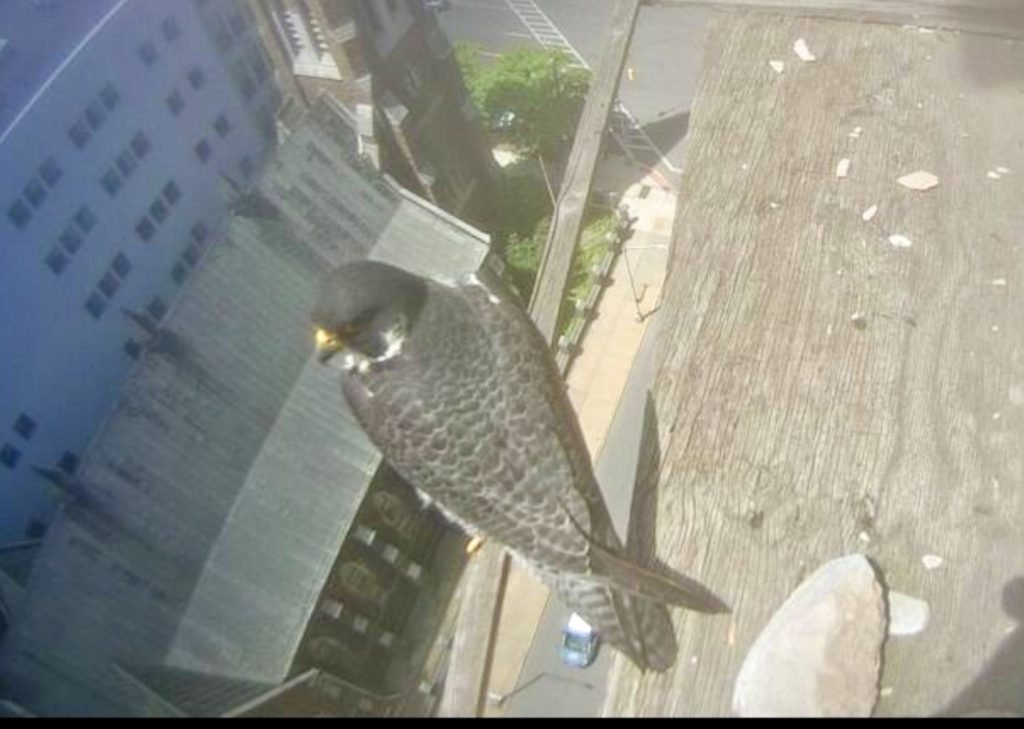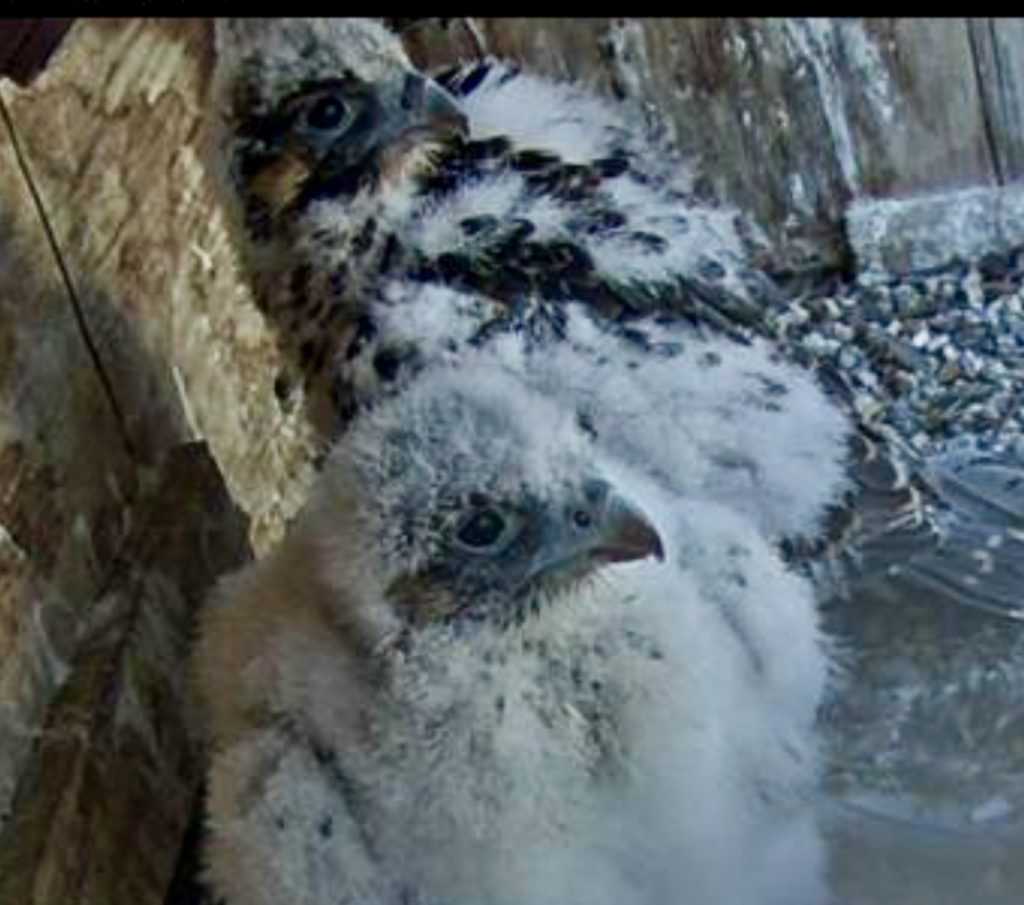
Update for Wednesday, May 29, 2024
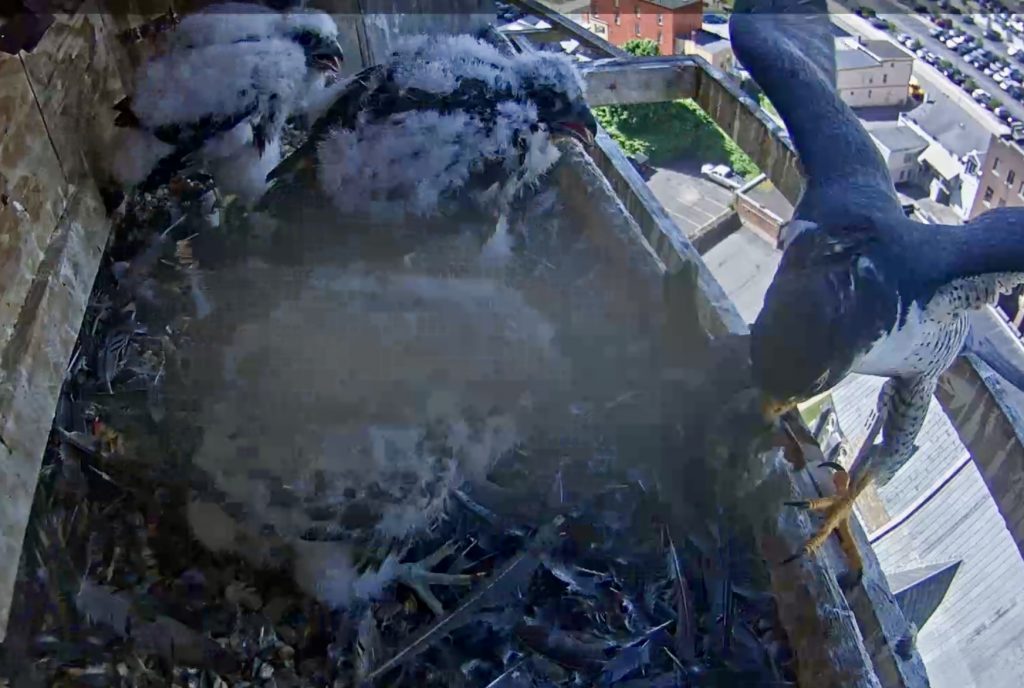
Early this morning, Ares brought prey to the nest but Astrid did not meet him there. He went ahead and took it inside the box and started a feeding. Richae immediately stole the food from him and brought it to the back of the box where she started feeding on it. Made a couple of tries to recover it failing each time, but the third time he succeeded. He went to the lip of the box and began feeding out the meal. The chicks had not been fed yet that morning and so they were very right in his face, raucously begging. To his credits, Ares continued and was doing a great job. Astrid arrived and made an attempt to take over on the feeding, but she couldn’t get by youngsters. She then somewhat reluctantly stood back and allowed Ares to continue. After a minute, she made a mad dash into the fray and took over from her mate.
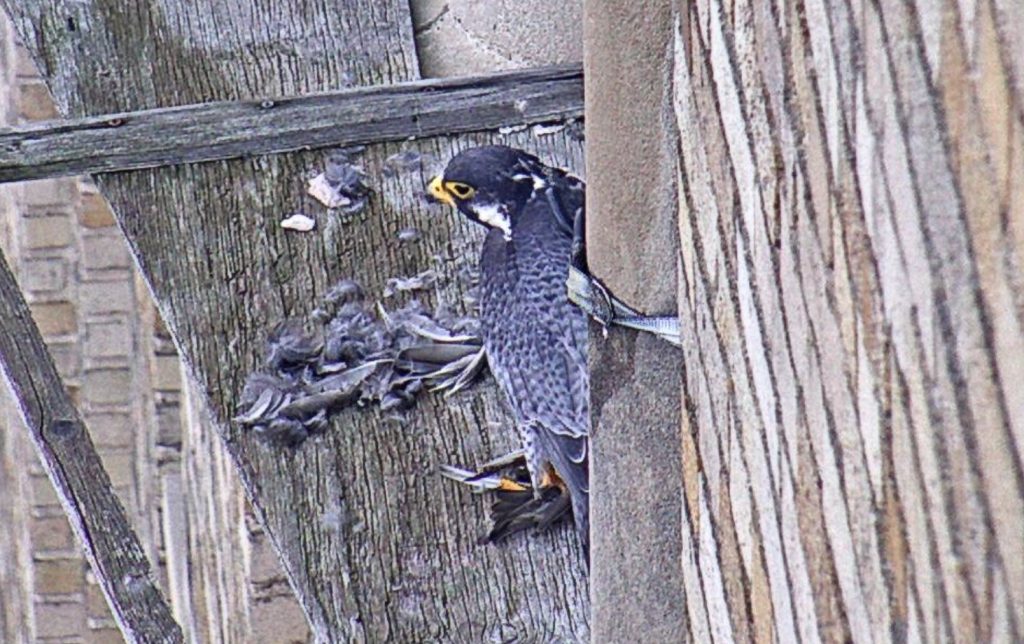
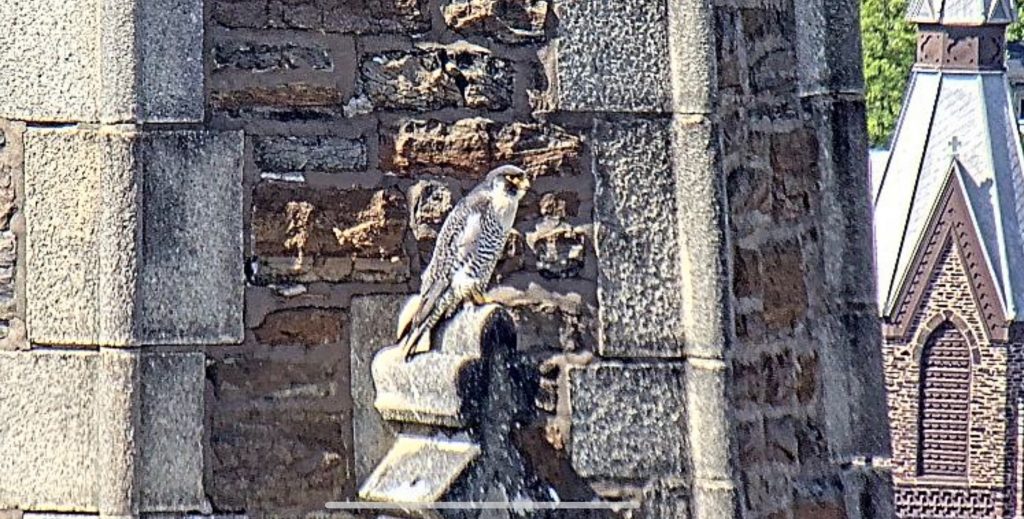
Male Peregrine Falcons exhibit a strong instinct to feed their nestlings, a behavior that underscores their crucial role in the family unit. During the breeding season, males are primarily responsible for hunting and providing food for their mates and chicks. They excel in capturing a variety of prey, which they bring back to the nest site. Despite this essential contribution, males often face a unique challenge: their mates, the female Peregrine Falcons, are typically more dominant at the nest and may not always allow them to feed the chicks directly. This dominance stems from the females’ larger size and assertive nature, which ensure they maintain control over the feeding process to monitor and ration food distribution among the hungry nestlings.
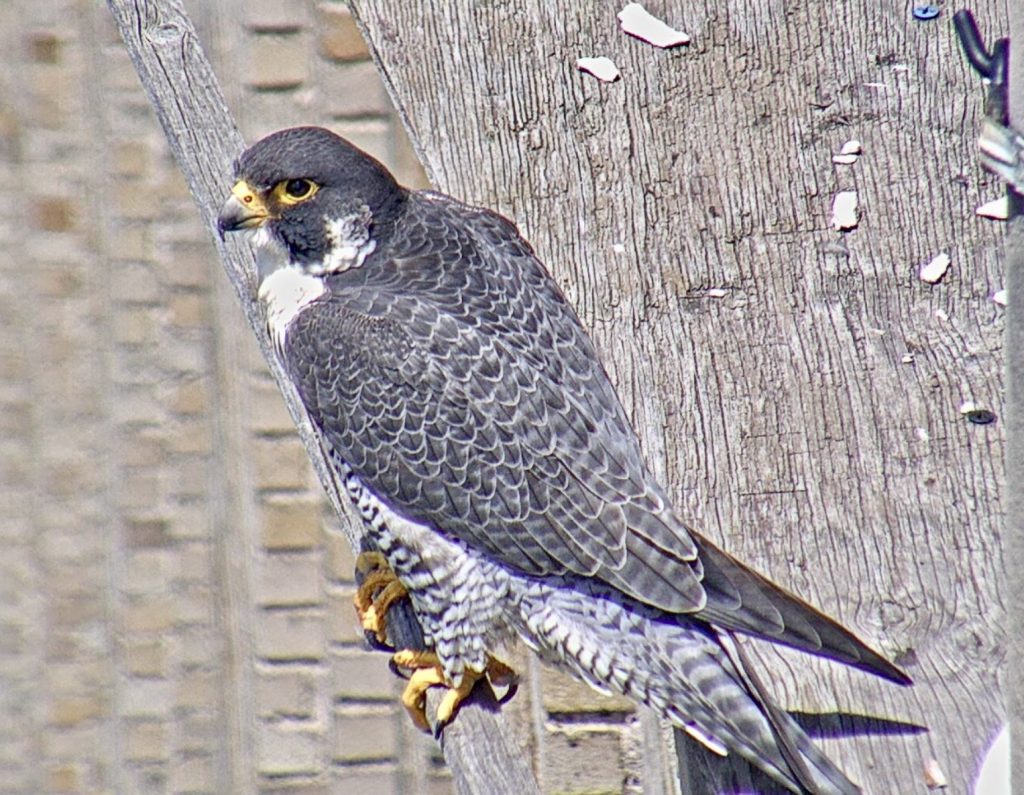
Even with these limitations, male Peregrines show persistent efforts to contribute to the feeding of their offspring. They deliver prey to a designated spot near the nest or directly to the female, who then takes over the task of tearing the prey into manageable pieces for the nestlings. This indirect method of provisioning highlights the cooperative nature of falcon parenting, where the male’s role in hunting is indispensable, even if he doesn’t always get to feed the chicks himself. The male’s consistent hunting efforts ensure a steady supply of food, which is crucial for the rapid growth and development of the young falcons.
